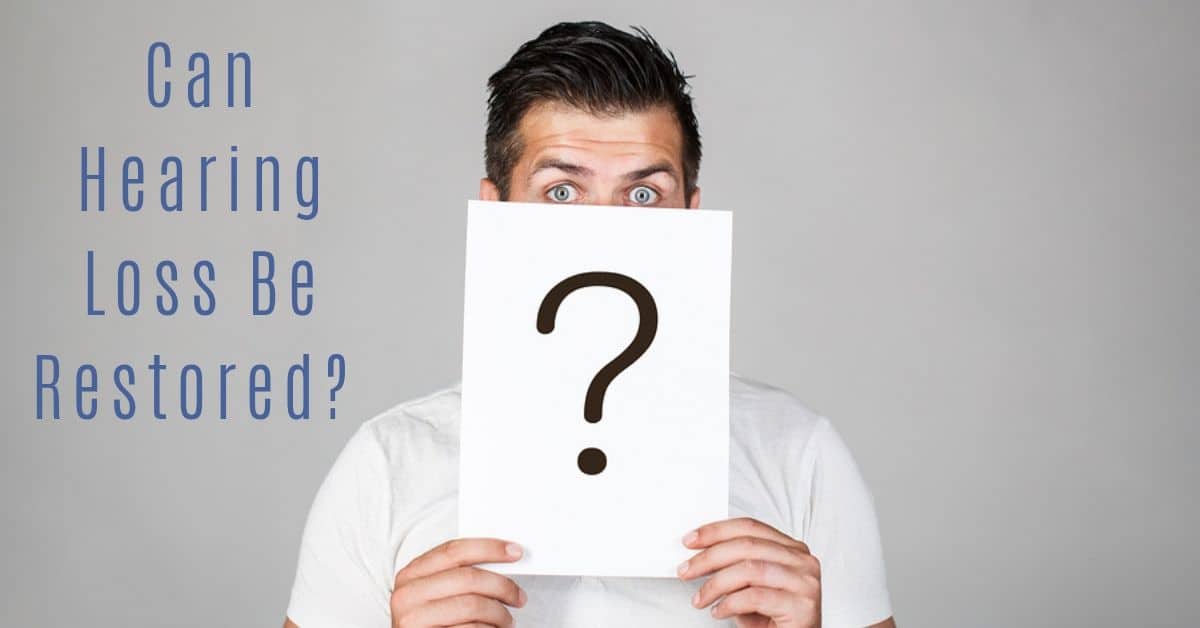
Only a short while ago, it might have seemed unimaginable that someone with a cancer diagnosis would be able to live for even a few more years. Take a look at the medical community today, and you will see just how far innovations have come regarding formerly fatal conditions. Similarly, those who might have suffered for many years with debilitating illnesses have found treatments that make their lives happy and thriving once again. However, we still have a long way to go when it comes to illness and chronic health conditions. Research and development in medicine require incredible resources, and the path from research to treatment faces many obstacles. Let’s take a moment to consider a condition that has been considered irreversible: hearing loss. Although, on one hand, the tissues of the body indeed will not regenerate with current technology, treatment options have advanced so far that we can ask ourselves if heating loss can indeed be restored.
Hearing Loss and the Body
Although there are many types of hearing loss, the most common form results from a lifetime of sound entering the ear canal. Hearing requires the sensitive, tiny hairs of the inner ear to detect differences in sound and to translate those subtle differences to the brain via the auditory nervous pathway. Those sensitive hairs are also very fragile, and exposure to loud sounds over the years can result in damage. Indeed, once those hairs have been damaged, they do not grow back. Without the ability to capture sounds and pass them along to the brain, a person experiences hearing loss that many consider “irreversible.” Yet, what if there were a treatment option that restored hearing to something close to its former ability? Would the condition be considered irreversible?
Hearing Loss Treatment Innovations
Those who develop responses to hearing loss have asked themselves these very questions, and technology has advanced such that treatment is ever better equipped to face hearing challenges. In the past, hearing aids and other forms of hearing assistance tended to simply raise the overall level of volume entering the ears. Consider how unsophisticated that technology might be in a noisy room. Although a person with hearing loss might be unable to hear the voice of the person in front of them, the general level of sound in the room might be cacophonous and overwhelming. With the old technology, a person wearing hearing aids might have been left with a debilitating condition, unable to carry on a conversation.
Although hearing assistive technology of the past might have offered an unrefined response to a complex problem, treatment innovations of the present are ever better at responding to those complexities. The latest hearing aids are able to detect the voice of a speaker closest to a listener and to amplify that voice while leaving the surrounding noise at a lower level. Another incredible innovation involves the customizability of hearing assistance. Some individuals have more trouble hearing at a very high frequency level, while others might have more trouble with the range of the human voice. New hearing aids are able to accommodate these differences, relaying a personalized hearing profile back to the ears of the user.
Treatment and Hearing Restoration
As you can see, in one sense hearing indeed cannot be restored in the context of the physical body. The tiny hair-like structures of the inner ear will not grow back once they have been damaged. However, treatment options have advanced at such a rate that hearing can be replicated in remarkably natural and precise ways. With this in mind, we have to ask ourselves, “What is the difference between treatment and hearing restoration?” Although the body might not be able to restore its hearing, technology can provide hearing assistance that mimics the body in astounding ways. Why not take the opportunity to discover just how accurate and lifelike the latest hearing aids have become?
Pacific Northwest Audiology
When you consult with our team at Pacific Northwest Audiology, you might discover that solutions are available to you that might take you very close to the hearing you experienced prior to loss. We’re here to help you find the best solution to meet your needs, and we look forward to working with you! Contact us today.
